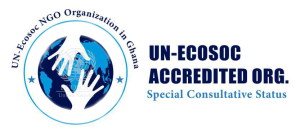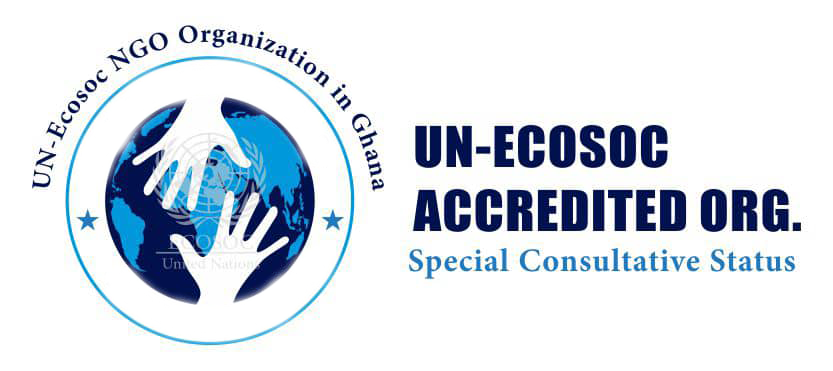About All Believers Pentecostal Church International (A.B.P.C.I.)
All Believers Pentecostal Church International (A.B.P.C.I.) is a non-governmental, non-profit, and socially conscious international organization established in 2009 and formally registered in 2015. Although founded on strong ethical and faith-inspired values, A.B.P.C.I. operates strictly as a development-focused NGO dedicated to the promotion of human dignity, social justice, peace, and sustainable development.
A.B.P.C.I. is internationally accredited in support of the United Nations Agenda for Global Development and holds Special Consultative Status with the United Nations Economic and Social Council (ECOSOC). This status enables the organization to participate in UN processes, contribute to policy dialogue, and collaborate with international institutions in advancing global development priorities.
The organization maintains accreditation and cooperation with several United Nations agencies and related international bodies, including UNDP, UNICEF, WHO, UNESCO, FAO, ILO, UNIDO, UNHCR, IMF, WIPO, ICAO, UNCTAD, ITU, UNEP, and other multilateral development partners.
Mission:
To promote inclusive development, peace, human rights, gender equality, and sustainable livelihoods through advocacy, capacity building, humanitarian assistance, and strategic partnerships, with special focus on vulnerable and marginalized populations.
Core Values:
Accountability and Transparency; Non-Violence; Respect and Human Dignity; Empowerment; Partnership and Collaboration; Community Leadership and Participation.
Areas of Expertise and Programmatic Focus:
A.B.P.C.I. works across a broad range of development sectors, including economic and social development, poverty eradication, education and skills development, health and HIV/AIDS awareness, agriculture and food security, climate change and environmental protection, gender equality and women’s empowerment, youth development, migration and refugee support, peacebuilding and conflict resolution, governance and public administration, statistics and research, and humanitarian response.
Through its humanitarian and advocacy platform, UNGH Protection Organization, A.B.P.C.I. implements programs supporting orphans, widows, child rights protection, drug abuse prevention, community health awareness, gender-based violence prevention, and emergency humanitarian assistance.
Organizational Structure:
The organization is governed by a President/Chief Executive Officer, Board Chairman, Vice Chairman, General Secretary, Executive Members, and a Chief Operating Officer (COO). This structure is supported by regional and national executives, general members, co-opted members, partner NGOs, and civil society organizations.
Funding Structure:
A.B.P.C.I. is funded through membership dues, grants from governments and international institutions, donations from domestic and foreign sources, fees from consulting, research, education and training services, fundraising campaigns, partnerships with NGOs and civil society organizations, and other lawful income-generating activities.
Commitment:
All Believers Pentecostal Church International remains committed to ethical leadership, inclusive development, and practical action that improves lives, strengthens communities, and contributes to a peaceful, just, and sustainable global society.

ALL BELIEVERS PENTECOSTAL CHURCH INTERNATIONAL
CHARTERED BY CHRISTIANSHIP FELLOWSHIP INTERNATIONAL USA.
APOSTOLIC COUNCIL OF CLEARGY GHANA.
WORLD CHARISMATIC AND PENTECOSTAL CHURCHES.
UNITED NATIONS ECONOMIC AND SOCIAL COUNCIL ACCREDITED. (ECOSOC)
GAZETTE BY GHANA PUBLISHERS ASSOCIATION
P O BOX WJ 301 WEIJA ACCRA GHANA
EMAIL: ABPCIGHANA@GMAIL.COM.
TEL: 0244306001 / 0246602030
